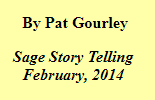 Well where to start with this one? I am gay and I do listen to music but I don’t think that imparts any element of queerness to the music I listen to or that any of that music is making me into any bigger queen than I am already. Other than many Furthur CD’s from the past year’s shows that I listen too sort of endlessly in my car I am a frequent user of Pandora.
Well where to start with this one? I am gay and I do listen to music but I don’t think that imparts any element of queerness to the music I listen to or that any of that music is making me into any bigger queen than I am already. Other than many Furthur CD’s from the past year’s shows that I listen too sort of endlessly in my car I am a frequent user of Pandora.
My current favorite artists on Pandora are anyone Motown connected, Warren Zevon, Van Morrison, and Bob Dylan, despite his recent obnoxious commercial during the Super Bowl for Chrysler. Dylan has always admonished his listeners not to ascribe any beliefs or agenda he may or may not have in regards to his music so I take this as license to attach whatever meaning I want to his tunes and I do.
Jerry Garcia was once asked why the Dead did so many covers of other people’s music, often Dylan songs, and his response was “because we are lazy”. I also am basically pretty lazy and Dylan’s music has always provided me over the years with a cheap high to get my politically correct righteousness up and running.
I have said on many occasions that I am missing the gay gene that one needs to appreciate Opera for example or even much of classical music though I do listen to a modest amount of classical music on Pandora. Listening to Opera however requires coercion and medication to happen, my apologies to all the Opera fans around this table.
I have been influenced greatly over the years though by several Opera lovers. This includes Harry Hay who is described in part by Will Roscoe in the introduction to Radically Gay as “an opera queen who has mastered Marxist dialectics…” More than his apparent love for opera I was aware of Harry’s research and genuine fondness for European Folk Music and his numerous attempts over the years to get me to try and introduce the singing of folk rounds into our Denver Radical Fairie activities. He was certainly aware of my fondness for the Grateful Dead but I think he assumed this was just a phase I would eventually outgrow. Or perhaps he had at some point heard my extreme inability to carry a tune of any sort and he thought best to leave well enough alone in this regard.
An interesting queer historical tidbit I will share is that Roscoe, in Radically Gay again, attributes Hay’s research into folk music as a direct contributor to the development of his ‘gay folks are a cultural minority thesis’ that helped launch the Mattachine society. Hay believed that a folk song could convey information beyond just the lyrics. The songs could also serve as vehicles for communicating about repression when the cultures and people involved were under someone’s heel.
Harry’s favorite example of this was a folk tune used in 1622 by Dutch freedom fighters to help recruit and organize disparate villagers who did not speak the same language. The name of this tune was “Bergen op Zoom”. The Dutch resistance in World War II used the same song also. Harry brought this folk tune to the fledgling Mattachine in 1950 and the group adapted it in their membership initiation ceremony. I have not had much luck in finding an English translation but have brought a copy in Dutch I believe and perhaps someone here can help. For those who might have more interest in this connection Hay made between folk music and queer identity I would refer you to Radically Gay (Will Roscoe, editor:1996) specifically the chapter titled “Music…man’s oldest science of organization”.
Harry never gave up though on the potential power of music, folk in particular, as a form of dialectics in action. A way to facilitate communication between Fairies that could lead to further exploration and discovery as to our true natures. In fact he was sending me copies of Rounds for gay men to use when getting together socially well into the 1990’s as I recall. I will refrain from launching into the many discussions I had over the years with Harry and his partner John that addressed the dialectic method of discourse as a means of eventually reaching consensus. Harry was always about consensus and shunned the rule of the majority. He thought queer folk and fairies in particular were potentially very adept at consensus and that one way to set the stage for such communication was to gayly sing Rounds, something I think he felt was an intrinsic form of gay music.
